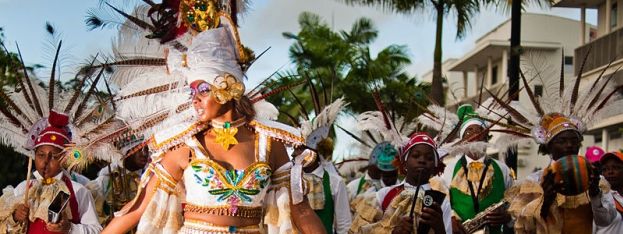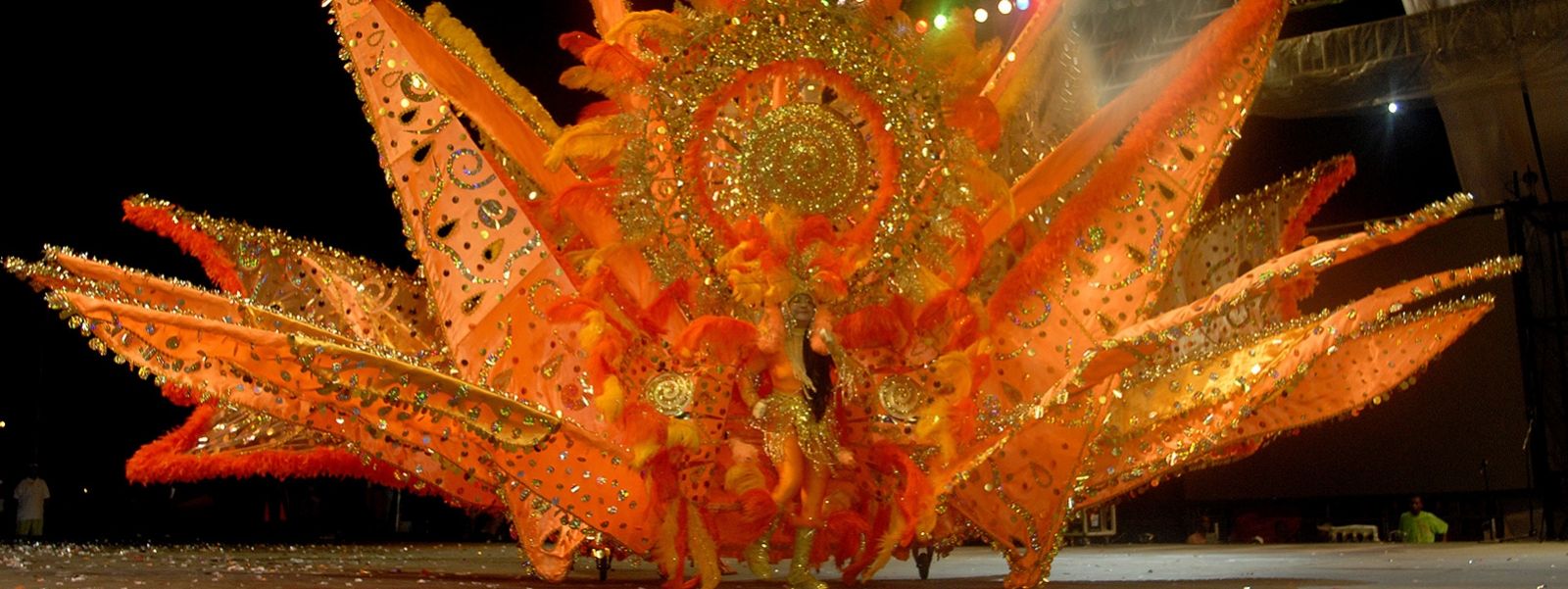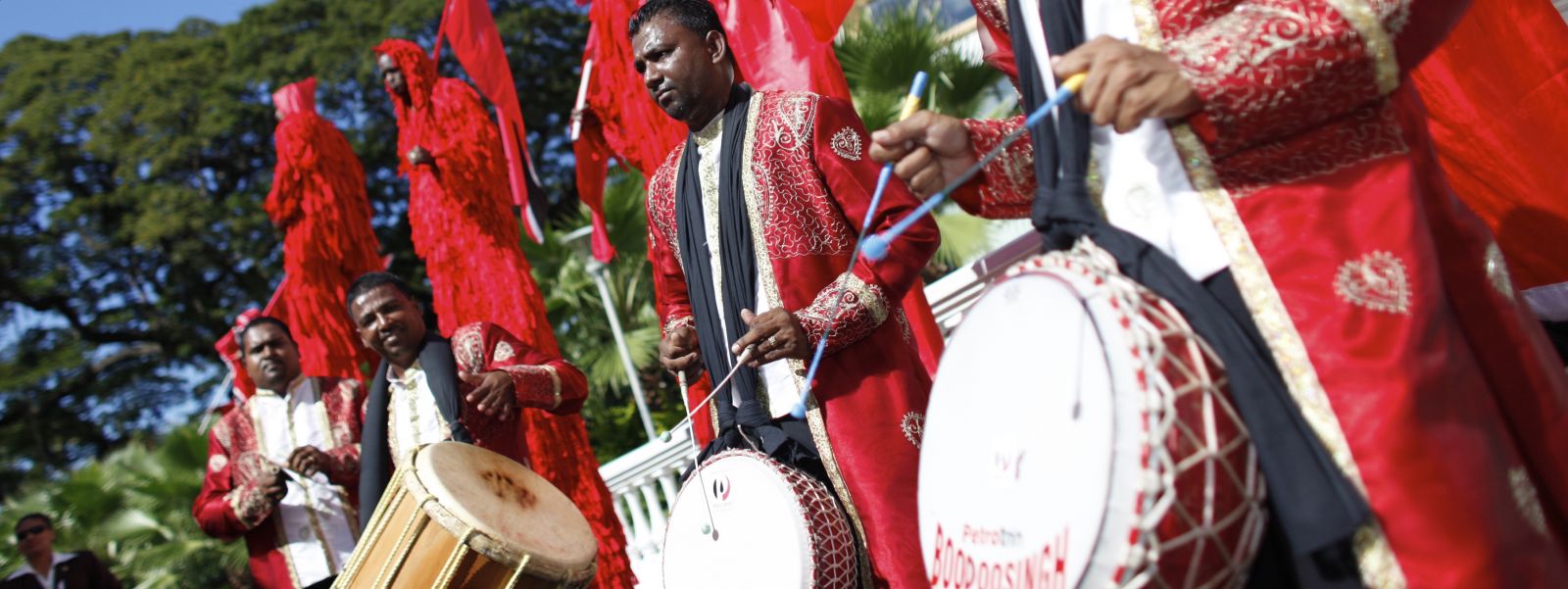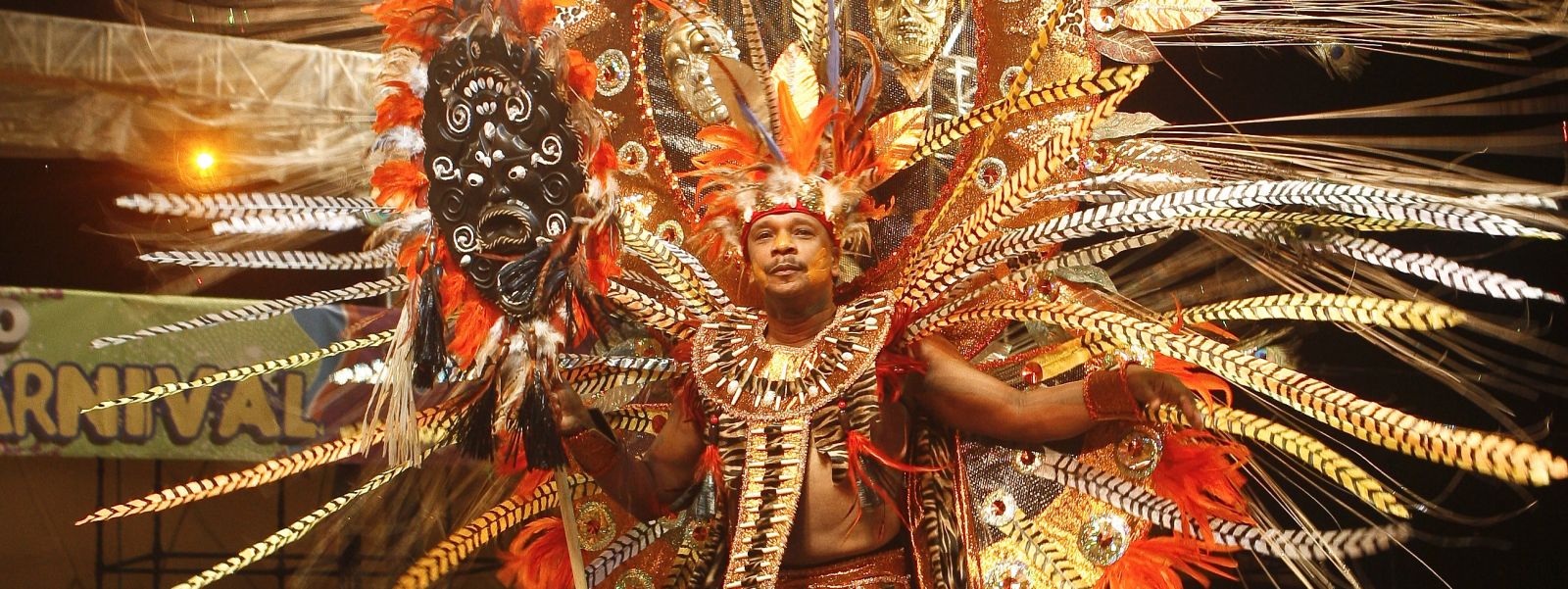
Spirit of Carnival
Feb 27, 2017
February in the Caribbean is synonymous with Carnival. The pre-Lenten festival offers exciting and diverse experiences from Haiti and Dominican Republic in the north, to Guadeloupe and Martinique in the French Caribbean, to Aruba and Curacao in the Dutch Caribbean, to the southern mecca of Carnivals, Trinidad & Tobago. The Caribbean region has a multiplicity of cultural traditions reflected in masquerade, music, and heritage events dating back to the 18th century.
Let me share a few things that my travels have taught me about Caribbean Carnivals:
 1. Carnival is MAS.
1. Carnival is MAS.
From feathered costumes often referred to as “pretty mas”, to traditional characters such as the Jab Jab, Dame Lorraine, Vaval, or Mas a Saint-Jean, to larger-than-life King & Queen costumes, to colorful displays of flags, Carnival is not a singular experience. With its traditions and practices based on various island nations or urban Caribbean enclaves, the common denominator of all Carnival celebrations is mas (short for masquerade). Whether you choose to “play mas” with your favorite band or just spectate, witnessing the spirit of Carnival’s creativity and expression through hand-crafted costumes and spectacular performances is a sight to behold.
2. Carnival is MUSIC.
The lingua franca of Caribbean Carnival is music. Whether you jam to rara, chip to steelband, jump to bouyon, or march to Saint-Jean, hypnotic and infectious island music blaring from trucks or marching bands will make your soul sing and your spirit dance. Rooted in Afro/Indian/Indigenous syncretic traditions–namely drums, horns, percussion, and more recently, EDM–music heard at Carnival ranges from classic forms such as merengue típico to more contemporary expressions such as soca.
 3. Carnival is for GROUPIES.
3. Carnival is for GROUPIES.
Find a local tribe, and you’re set for life. Truth be told, Carnivals can be challenging to navigate: scoring the tickets to the hottest fetes, choosing costumes in the “right band”, learning the season’s most popular songs, and finding the tastiest street food to keep yourself nourished and hydrated, requires a lot of stamina and savvy. Your best bet is to connect with a fun group to ensure you experience Carnival like a local. Just don’t forget to pace yourself so you don’t burn out!
4. Carnival is GLOBAL.
Carnival is a celebration that is one of the hallmarks of global Caribbean culture and a significant marker of cultural heritage, identity, and national pride. While most Caribbean Carnivals take place in February, there are also many that take place during summer months in places like Grenada, St. Lucia, Barbados–and let’s not forget Diaspora cities like Brooklyn, Notting Hill, Miami, Montreal, and Toronto. For one of the most transformative and authentic experiences the Caribbean has to offer, choose an island or city near you and take a jump!
 5. Carnival is a WAY OF LIFE.
5. Carnival is a WAY OF LIFE.
To say Caribbean Carnival is an experience of a lifetime is an understatement. True practitioners begin preparing as early as Ash Wednesday for the next year, and masqueraders, musicians, and artisans begin honing their crafts as young children. Whether you experience Carnival, Kanaval, Carnaval, or j’ouvert, the key is to let go (of all your troubles) and immerse yourself in mas, music, and culture.
6. LIFE NEEDS CARNIVAL!
Festivities including mas processions, fetes, local and national competitions are typically multi-day events that start in early January and culminate in February, with the main activities taking place the week leading up to Ash Wednesday. If large crowds are not your thing, find a smaller town to visit where the festivities tend to be more low-key. Check with your local tribe or Carnival commission for official schedules.
____________________________________________________________________________
Story Credit: Shelley V. Worrell
About Shelley V. Worrell: Shelley is the Founder + Chief Curator of caribBEING, a global platform for Caribbean film + art + culture. Her active participation in Caribbean Carnivals commenced in her teens, first in Brooklyn, then in Trinidad, and has since taken her to Guadeloupe, St. Lucia, Montreal, Miami, and Washington, DC.
A NYC native, Shelley is a first generation Caribbean-American. For more information, follow caribBEING on Facebook, Twitter or Instagram.

